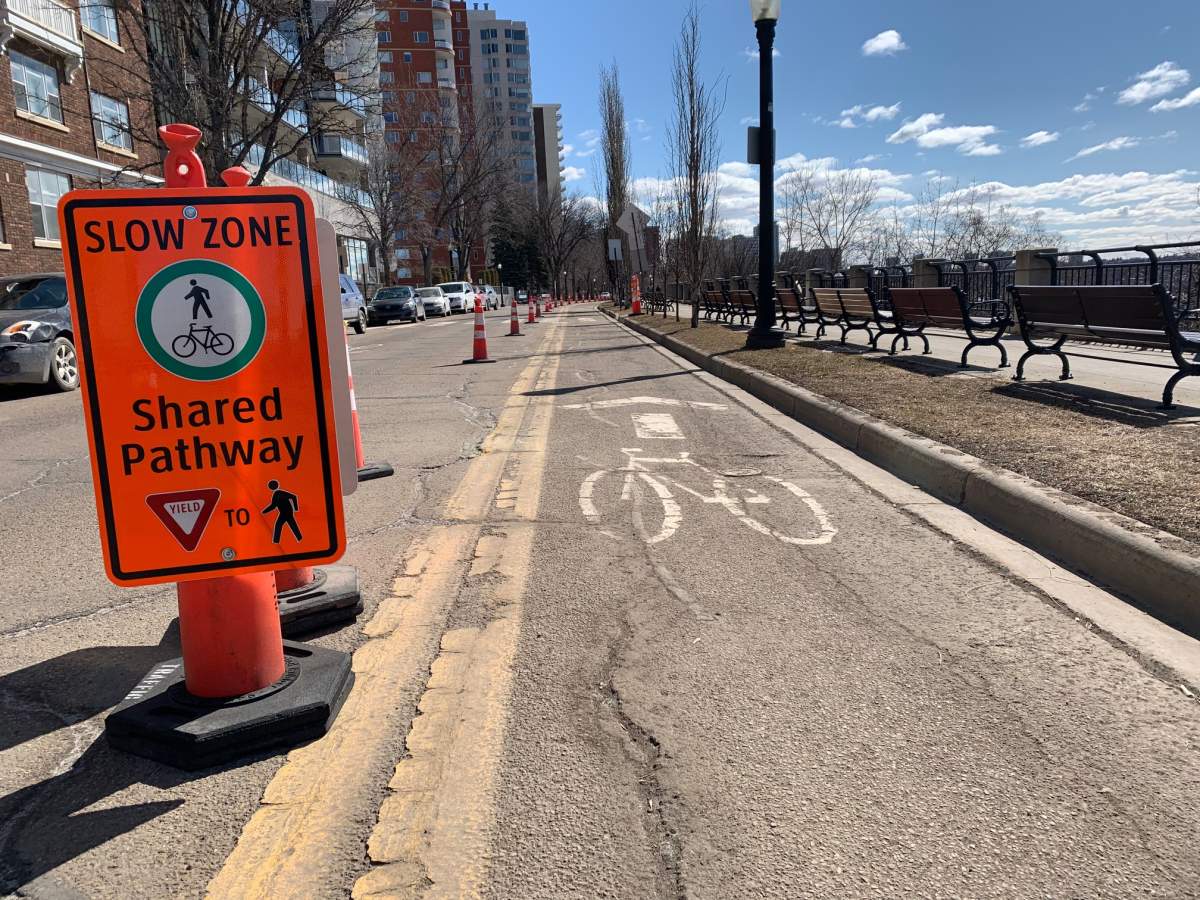As a way to encourage better physical distancing as the temperatures climb, the City of Edmonton has opened some residential streets to vehicles, pedestrians and cyclists.

On Thursday afternoon, the City of Edmonton extended its local state of emergency by another week. It also unveiled further measures to ensure physical distancing measures are followed as more people get outside the enjoy the warm spring weather.
The city will introduce shared streets in some high-density neighbourhoods that do not have transit service. Shared streets will be open to those who are walking, cycling or driving.
“These adjustments will help us create safer spaces for outdoor activities as the COVID-19 pandemic changes aspects of how we live, move and exercise,” interim city manager Adam Laughlin said.
“No matter what we’re doing when we leave our homes, we all have a responsibility to maintain physical distance and help limit the spread of COVID-19.”

The city said the speed limit for vehicles on the shared streets will be 20 km/h. The locations are:

Get weekly health news
Effective May 6:
- 103 Avenue (111 Street to 125 Street)
- 125 Street (Jasper Avenue to 103 Avenue)
- Jasper Avenue (124 Street to 125 Street)
Effective May 8:
- 115 Street (103 Avenue to alley south of 100 Avenue)
- 114 Street (103 Avenue to 103A Avenue)
In addition, traffic lane closures will be implemented at select new locations across the city to ensure Edmontonians who are outdoors can maintain appropriate physical distancing:
- Jasper Avenue (121 Street to 124 Street)
- 102 Avenue (103 Street to 108 Street)
More enforcement on river valley stairs
The river valley staircases also continue to be a concern for city officials when it comes to physical distance. During a council meeting Thursday, councillors said more enforcement would be coming and tickets could be handed out to people who are too close to others.
The issue of too many people on the stairs has been a concern since late-March.
Food truck permits
Also Thursday, the City of Edmonton said it will continue to issue vending permits to food truck operators. The permits will be issued with additional requirements in place to ensure public health and safety is maintained, the city said.
Those requirements include:
- No seating or consumption areas
- No self-serve condiments
- Appropriate physical distancing measures for lineups and ordering
- Maintaining distance between food trucks to avoid congestion
- Disinfecting measures in line with AHS recommendations
Food truck locations will be limited to on-street parking zones and city parkland parking lots. Permits will only be issued to operators that qualify as an essential food service under provincial requirements. Permits will not be issued for carts or food vendors that would typically operate on sidewalks.









Comments